News
-
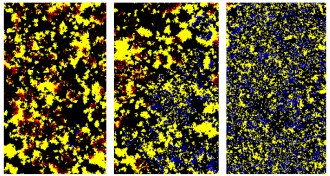 Life
LifeAging: Nature’s way of reducing competition for resources
Aging may have developed in many species as a genetic mechanism to conserve future resources. If the controversial proposal is true, then scientists may be able to greatly extend life span by deactivating the machinery for aging embedded in our DNA.
By Andrew Grant -
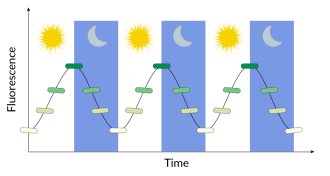 Genetics
GeneticsA circadian clock transplant gives E. coli rhythm
Clockworks from algae built into E. coli may hold future jet lag treatment.
-
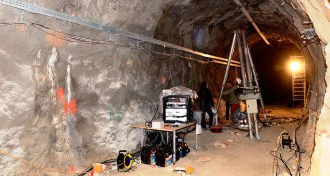 Earth
EarthFluid injection triggers earthquakes indirectly, study finds
An up-close look at artificially triggered quakes suggests that tremors start slow and smooth.
-
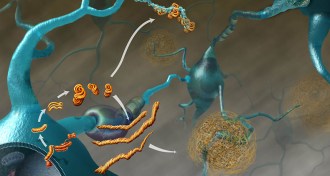 Life
LifeA protein variant can provide protection from deadly brain-wasting
If cannibalism hadn’t stopped, a protective protein may have ended kuru anyway.
-
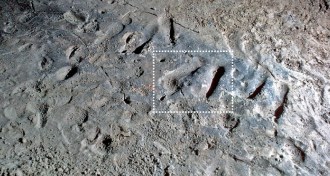 Anthropology
AnthropologyModern-day trackers reinterpret Stone Age cave footprints
African trackers help researchers interpret ancient human footprints in French caves.
By Bruce Bower -
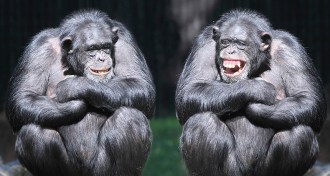 Anthropology
AnthropologyHuman laugh lines traced back to ape ancestors
Chimps make laughing faces that speak to evolution of human ha-ha’s.
By Bruce Bower -
 Archaeology
ArchaeologyBronze Age humans racked up travel miles
A new study indicates long journeys and unexpected genetic links in Bronze Age Eurasian cultures.
-
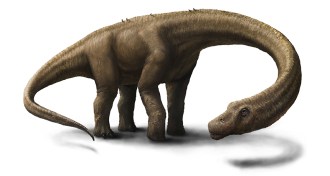 Paleontology
PaleontologyNew analysis cuts massive dino’s weight in half
Gigantic dinosaur Dreadnoughtus may have weighed only about half of what scientists estimated last year.
By Meghan Rosen -
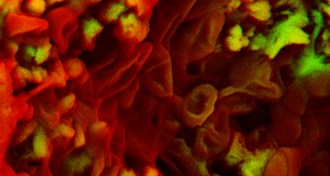 Paleontology
PaleontologyTraces of dino blood, soft tissue found even in junk bones
Hints of blood and collagen found in poorly preserved dinosaur bones suggest that soft tissue from the creatures may be easier to come by.
-
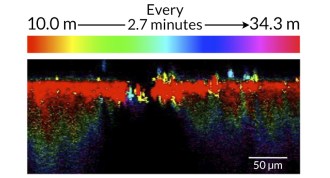 Life
LifeTracing molecules’ movement in nails may help fight fungus
Tracking chemicals through the human nail may provide valuable insight for drug development.
-
 Physics
PhysicsRogue waves don’t always appear unannounced
Scientists may be able to forecast the arrival of anomalously large ocean swells, suggest scientists who analyzed the moments before rogue water waves and freak light flashes.
By Andrew Grant -
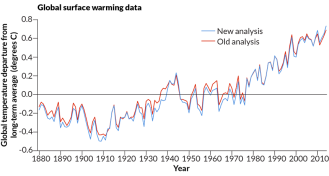 Climate
ClimateGlobal warming ‘hiatus’ just an artifact, study finds
Skewed data may have caused the appearance of the recent global warming hiatus, new research suggests.